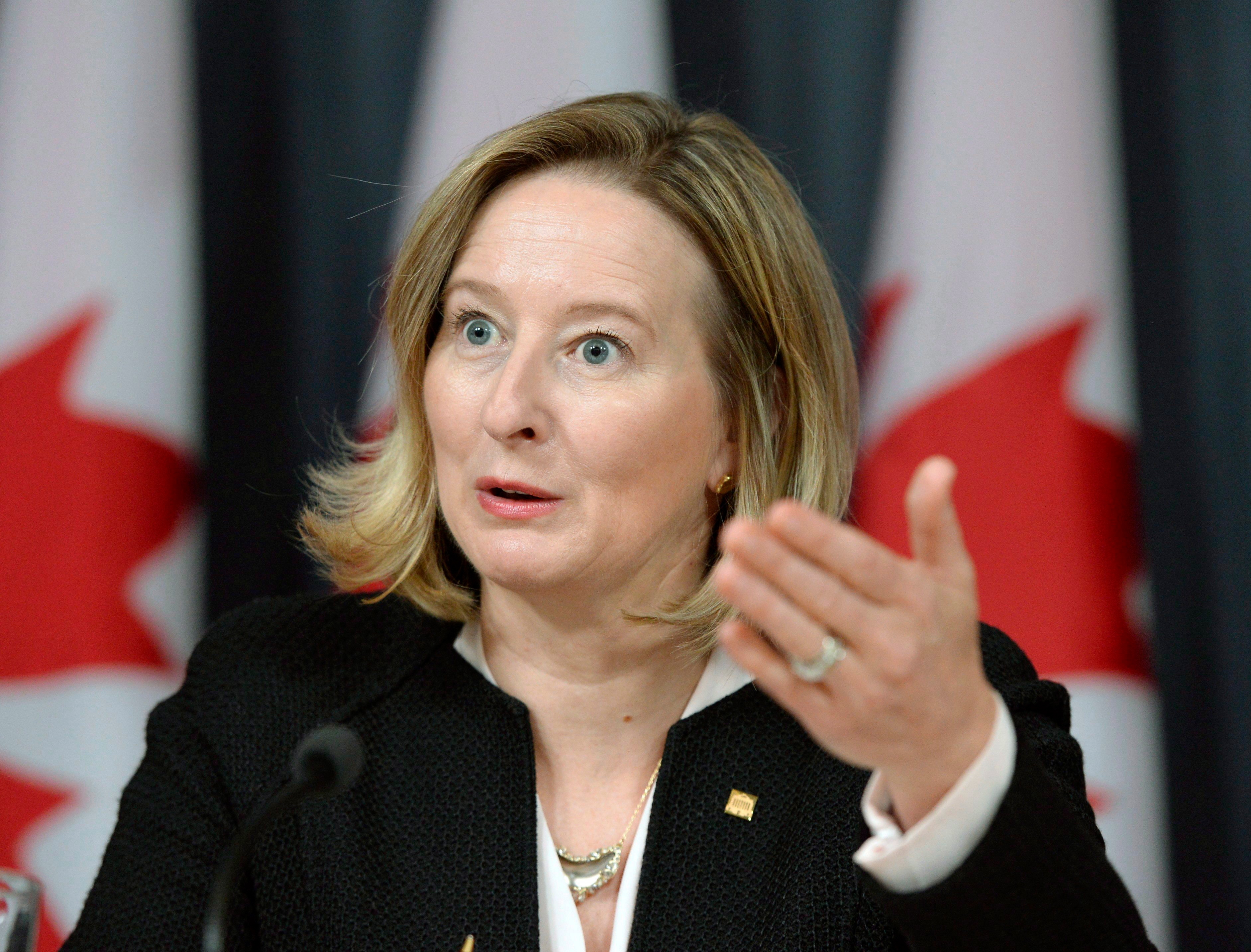Jun 13, 2017
Canadian dollar, tech stocks flash points as U.S. Fed meets
, Reuters

LONDON - The prospect of the United States, the world's largest economy, raising interest rates and shrinking its mammoth balance sheet reverberated across markets from Toronto to Beijing on Tuesday.
U.S. Federal Reserve policymakers gather in Washington for their two-day meeting against the backdrop of a slide in tech stocks that served as a reminder of how tighter financial conditions may hurt sectors where valuations appear stretched.
That sell-off was seen petering out on Tuesday as Wall Street looked set to rebound with Asian and European stocks.
But it was just one vulnerability that also spread across currency and debt markets in the likes of Canada and China, where investors see the Fed as a guide for their monetary policy.
The Canadian dollar hit a two-month high after a policymaker said the central bank would assess if it needs to keep rates at near-record lows as the economy grows, while the prospect of China raising short-term rates has come as its yield curve inverts in a worrying sign for growth.
The gap between benchmark U.S and European bond yields held near its widest in a month as the Fed meeting also shone a light on the slow pace of change in European Central Bank policy.
"If the Fed is tightening policy and embarking on a gradual normalisation path, whether it is the short-term policy rates or the balance sheet, it wants the market to believe it and to adjust to it," said Frederik Ducrozet, an economist at Pictet Wealth Management.
"It is not just about complacency and the creation of financial bubbles ... but also about its own credibility."
The Fed is widely expected to raise its benchmark interest rate in a decision scheduled for Wednesday and may also provide more details on its plans to shrink $4.5 trillion dollars of assets it amassed to nurse the economic recovery.
The Bank of Japan and the Bank of England also meet this week, although no major policy changes are expected.
STOCKS REBOUND
Futures showed Wall Street opening 0.2 percent higher, steadying after tech stocks (.SPLRCT) notched up losses of over 3.5 percent in the past two sessions. That has been driven by tech giants Apple (AAPL.O), Alphabet GOOGL.O), Facebook (FB.O) and Microsoft (MSFT.O).
European stocks rebounded from seven-week lows in early deals as shares in tech firms recovered and financials rose.
The pan-European STOXX 600 was up 0.6 per cent, partly recovering losses from the previous sessions. Technology was the top sectoral gainer, up 1.1 per cent after posting a 3.6 per cent loss on Monday.
MSCI's broadest index of Asia-Pacific shares outside Japan also rose 0.6 percent, recouping about half of the previous day's losses. The MSCI Asia Pacific Information Technology index steadied, after sliding 1.4 per cent on Monday.
Some analysts had predicted Asian tech shares would not see as intense a sell-off as their U.S. peers, as their valuations were less stretched.
"Comparatively, valuations for the IT sector in the Asia Pacific region are less expensive compared to the U.S., which may be why we're not seeing the situation further aggravate for a second session," said Jingyi Pan, market strategist at IG in Singapore.
A small majority of traders in China's financial markets think its central bank will raise short-term interest rates again this week if the Fed hikes its key policy rate, according to a Reuters poll.
But the reaction to this in bond markets has been concerning.
China's two-year yields have in the last few sessions risen above its 10-year yields -- a trend that has only happened in a few instances over the past decade, and which suggests investors have worries over the long-term health of the world's second-biggest economy.
WEIGH IN

What’s your main takeaway from Bank of Canada Senior Deputy Governor Carolyn Wilkins’ speech?
CANADIAN SURPRISE
In currencies, the Canadian dollar strengthened about 0.6 percent to trade at $1.325, after gaining 1.1 per cent on Monday.
Monday's comments from a Bank of Canada official was a change in tone for the central bank, which said earlier this year that rate cuts remain on the table.
"It feels like a long time since markets have been treated to unscheduled hints of tightening, and this was quite apparent when you saw the positive reaction of CAD crosses overnight," Matt Simpson, senior market analyst at ThinkMarkets in Melbourne, wrote in a note.
Against a broad basked of trade-weighted peers, the U.S. dollar was a touch weaker.
Sterling regained around 0.5 per cent against the dollar, having fallen almost 3 per cent since the first hint of Britain's election result on Thursday night.
The recovery has been helped by hopes domestic politics may be inching toward a "softer" and less economically damaging Brexit.
Above-forecast U.K. inflation data on Tuesday further complicates an outlook that shows the economy slowing but prices rising much faster than the Bank of England's 2 per cent target.
In commodities, oil advanced on news that Saudi Arabia would make supply cuts to customers.
Brent crude futures were at US$48.64 per barrel at 0833 GMT, up 35 cents, while benchmark U.S. crude was at US$46.38 per barrel, up 30 cents.







